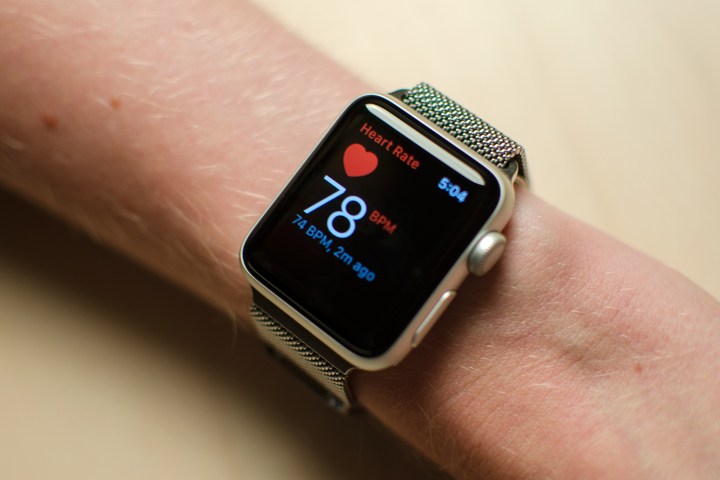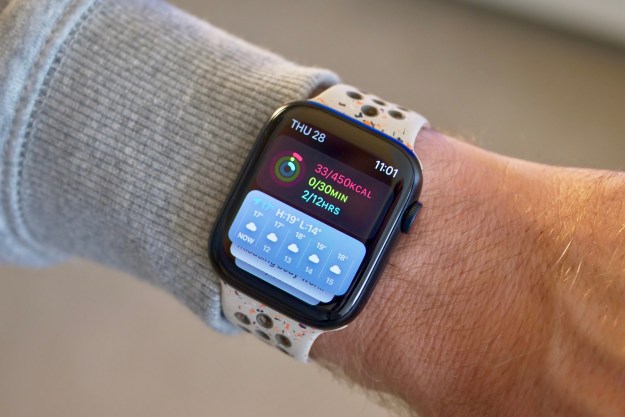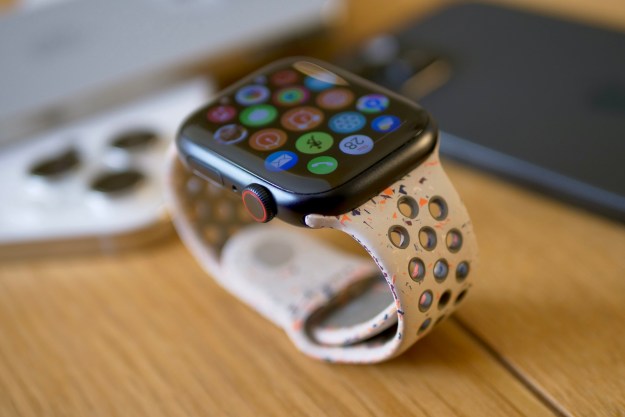
In other words, Apple Watch Series 3 owners may be able to control their device just by moving their hand, without having to use a tiny touchscreen.
The patent shows another technology that could be included in the device — a camera. According to the patent, the watch could come with both an image sensor to capture photos, as well as the software needed to be able to process photos that can then be either sent back to the smartphone or viewed on the device.
Not only that, but the patents also show that the Apple Watch will include an important security feature — the ability to detect who’s wearing it judging by their heart rate. The system would work similar to existing sensors on the Apple Watch, projecting light onto the skin of the wearer and then detecting how much of it is absorbed and how much is reflected back. Using that data, the sensor can then measure how much blood is present in the veins below.
On top of using the heart rate sensor to determine the wearer, the device could also use data from motion sensors like the accelerometer and gyroscopeto detect unique movement patterns. Such systems could eventually replace Touch ID during the authentication process for systems like Apple Pay, making using it slightly easier.
Editors' Recommendations
- I keep forgetting about the Apple Watch Series 9’s coolest feature
- Nomad’s new iPhone case and Apple Watch band may be its coolest yet
- Apple issues fix for ‘ghost touch’ problem on older Apple Watches
- Apple may stop updating one of its best Apple Watches this year
- Why you shouldn’t buy these 5 Apple Watch Series 9 alternatives


